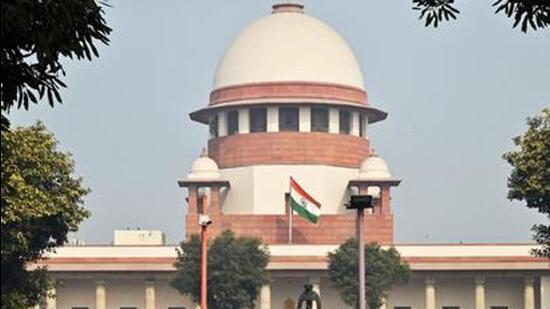
Calling someone ‘Miyan-Tiyan’ & ‘Pakistani’ not an offence: Supreme Court
In a recent judgment, the Supreme Court of India has clarified that calling someone “Miyan-Tiyan” and “Pakistani” is in poor taste but does not constitute an offence. This ruling was made in response to a case filed against an 80-year-old man who was accused of hurling abuses at an Urdu translator in Jharkhand.
The controversy began when the Urdu translator filed a complaint against the 80-year-old man, alleging that he had used abusive language and made derogatory remarks against him. The complaint was filed under sections 294 (obscene acts and songs) and 509 (word, gesture or act intended to insult the modesty of a woman) of the Indian Penal Code.
However, during the hearing of the case, the Supreme Court expressed its view that the remarks made by the 80-year-old man were indeed in poor taste but did not amount to hurting the religious sentiments of the translator. The Court observed that the remarks did not contain any words or phrases that could be considered blasphemous or offensive to the translator’s religion.
The Court’s ruling was based on the principle that freedom of speech is a fundamental right guaranteed by the Constitution of India. However, this right is not absolute and can be restricted only to the extent necessary to prevent harm to others. In this case, the Court held that the remarks made by the 80-year-old man did not cause any harm to the translator or his religious sentiments and therefore did not constitute an offence.
The Court’s ruling has sparked heated debate and controversy, with some people welcoming the decision as a victory for freedom of speech, while others have criticized it as insensitive and disrespectful to the religious sentiments of Muslims.
Some have argued that the term “Miyan-Tiyan” is a derogatory term that is often used to insult Muslims and is therefore offensive. They have pointed out that the term is not just a simple term of endearment, but is often used to convey contempt and disrespect towards Muslims.
Others have argued that the Court’s ruling is a setback for the fight against hate speech and religious intolerance. They have pointed out that the Court’s decision sends a message that derogatory remarks against Muslims are acceptable and that Muslims do not have the right to be protected from such abuse.
However, others have welcomed the Court’s decision, arguing that it is a victory for freedom of speech and the right to dissent. They have pointed out that the Court’s decision is in line with the principles of the Constitution, which guarantees the right to freedom of speech and expression.
In conclusion, the Supreme Court’s ruling that calling someone “Miyan-Tiyan” and “Pakistani” is in poor taste but does not constitute an offence is a complex and controversial issue. While some may welcome the decision as a victory for freedom of speech, others have criticized it as insensitive and disrespectful to the religious sentiments of Muslims. Ultimately, the Court’s decision is a reminder that freedom of speech is a fundamental right that must be balanced with the need to protect the rights and dignity of all individuals, regardless of their religion or beliefs.
Source:






